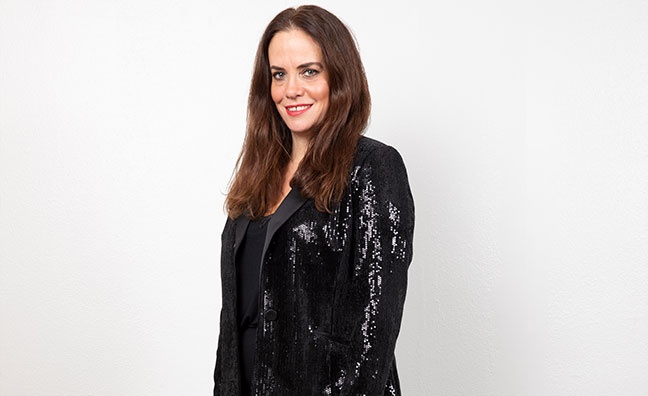At the Music Week Women In Music Awards this month, 12 names were added to the Roll Of Honour, sponsored by Jack Radio, which celebrates female execs across the industry. We meet the class of 2019...
Lucy Noble, artistic and commercial director, Royal Albert Hall
How do you feel about joining the Music Week Women In Music Roll Of Honour?
“I feel very excited and honoured! While the Royal Albert Hall wins accolades all the time, this is the first time I’ve been personally recognised in this way, so I’m very proud.”
How do you look back on your early years getting into the industry?
“Interestingly my very first job was a steward at the Hall whilst I was a student at the Royal College of Music – I got to watch all the amazing shows and was gaining invaluable experience of live performances. I’ve worked hard to get where I am, but I’ve enjoyed every second. I’ve met some amazing people along the way and made some lifelong friends. Music has always been a huge part of my life and I feel very fortunate that I’ve managed to build my career in this industry.”
Did you have a mentor or role model who helped you at that stage?
“My dad, who passed away a couple of years ago. He wasn’t in the music industry but his work and business ethics taught me a lot, including how to deal with everyday life in a work environment.”
What do you consider to be your biggest achievement so far?
“There are a lot of things I’m proud of, but perhaps everything we’ve done around Christmas. Last year, we took on Christmas At The Royal Albert Hall ourselves, promoting, producing and delivering the whole season for the first time in the venue’s 148-year history, and it was a huge success. My three children have been quite a big achievement as well!”
What one thing would you change about the biz?
“It needs to be more accessible. You should not be prevented from entering the music industry because of your cultural or financial background. We’ve committed to a wide-ranging programme that includes apprenticeships, the Young Producers initiative and our partnership with the BRIT School, alongside workshops and networking events, which is designed to help get rid of those barriers.”
Is the business taking enough positive and proactive steps to deal with the issues surrounding diversity and equality?
“We’re working incredibly hard on this, but there’s still a huge amount to do. Programming has to be at the heart of it – the Hall has to represent modern Britain, not the Britain of 1871 [when it was founded], and when we get the right acts then new and more diverse audiences will follow from that. At the recent headline shows from Wizkid and Kano, the atmosphere in the Hall was absolutely electrifying.”
Is the industry doing enough to protect the mental health of execs and artists?
“At the very least, all companies should have a wellbeing committee. At the Hall this is run by staff volunteers, who lead on a host of initiatives and events. We also have fully-trained mental health first aiders. There’s really no excuse for venues not to be doing this.”
What advice would you offer young female executives about enjoying a successful career in music?
“Of course it shouldn’t matter if you’re male or female, but if you’re a young female executive who can see double standards, you shouldn’t be afraid to call it out. More broadly, I’d say to take every chance and work hard – and yes, you might have to do the boring stuff like photocopying and making tea, but we all had to do it! Be patient and work hard, and if you’re good, you will achieve success.”
What’s the best piece of advice you’ve ever received?
“Always be honest.”
What is your vision for the music industry’s future?
“I believe that musical education should be part of all children’s education and not just a privilege for the minority. To me, it’s wrong that music and the creative arts aren’t available for all GCSE students. The Hall does what it can to support creative education but this needs to be available for children in schools across the country. I benefited from an amazing music education which has got me to where I am today and there are thousands of young people who are now not getting those opportunities. Without young musicians there is no future for the industry.”








